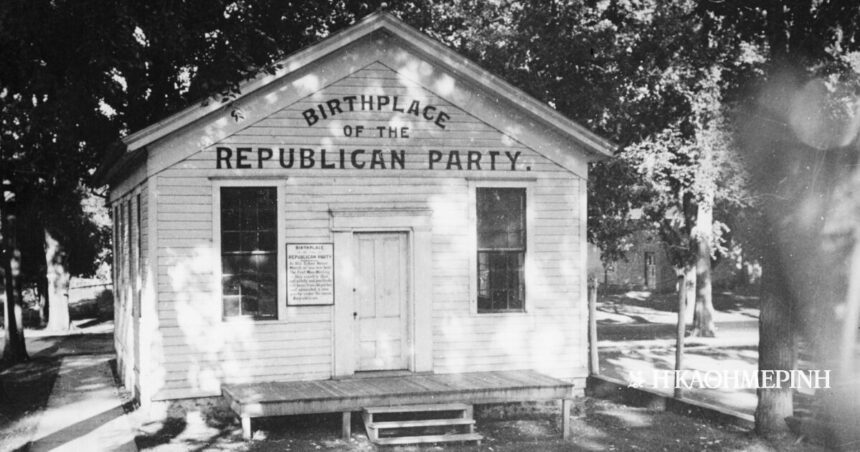The Republican party of United StatesAlso known as the “Grand Old Party” (GOP), it was founded on March 20, 1854, in a period of intense social and political upheavals preceding the American Civil War. Its establishment has been a response to the growing tensions on the issue of slavery and its expansion to the country’s new territories.
In the mid -19th century, the US was expanding west, incorporating new territories. The central issue that arose was If slavery would be permitted in these new areas. 1820’s “compromise of Missouri” had temporarily resolved the issue, defining a line of separation between slave and non -states. However, the adoption of the “Kansas-Nebraska law” in 1854 overthrew this agreement, allowing residents of the new areas to decide through a referendum on slavery. Evolution has sparked strong reactions, especially those who were opposed to the spread of slavery.
The opposition to the “Kansas-Nebraska law” led to the convergence of various political groups and people who wanted to abolish slavery. On March 20, 1854, in Ripon, Wisconsin, a meeting was held founding moment of the Republican Party. This meeting was attended by former members of the Wigs Party, the FREE Soil Party and others who reacted to slavery. Their main aim was to resist the expansion of slavery to the western territories and to promote freedom and political rights.
In the 1856 elections, Republicans presented their first presidential candidate, John Frimont.
The new party developed rapidly, attracting supporters from various political factions that shared their opposition to slavery. In the 1856 elections, Republicans presented their first presidential candidate, John Frimondwho, though he did not win, achieved significant success for a new party. But real success came in 1860, when the Abraham Lincoln He was elected president, marking a turning point in American political history. Lincoln’s election caused the secession of several southern states, eventually leading to the American Civil War (1861-1865).
The Republican Party played a decisive role in shaping the American political scene. At the beginning of the 20th century, there was a leading force in promoting economic reforms, and during the Cold war supported anti -communism and military policies. In modern times, the party is known for its conservative positions on issues such as taxation, defense and social values.
Over time, the Republican Party moved to more conservative positions.
Initially, the Republican Party adopted radical positions such as Abolition of slavery and promoting political rights for African Americans. However, over time, he moved to more conservative positions. At the end of the 19th and early 20th centuries, the party supported economic growth, boosting businesses and limited government intervention in the economy. This shift reflected the changing social and economic conditions of the country.
In the 1960s, the party adopted more conservative policies, especially in the south, in response to the social and racial changes brought about by the political rights movement. The so -called “Southern Strategy” used the dissatisfaction of many white voters against the reforms in favor of African Americans, turning the South by a Democratic stronghold on the basis of Republicans. In recent decades, the party has been identified with positions such as free market, low taxation, limited government interventionism, strengthening national defense and defending traditional social values.
Column: Myrto Katsigera, Vassilis Minakakis, Antigoni-Despina Poumenidou, Athanasios Syroplakis








